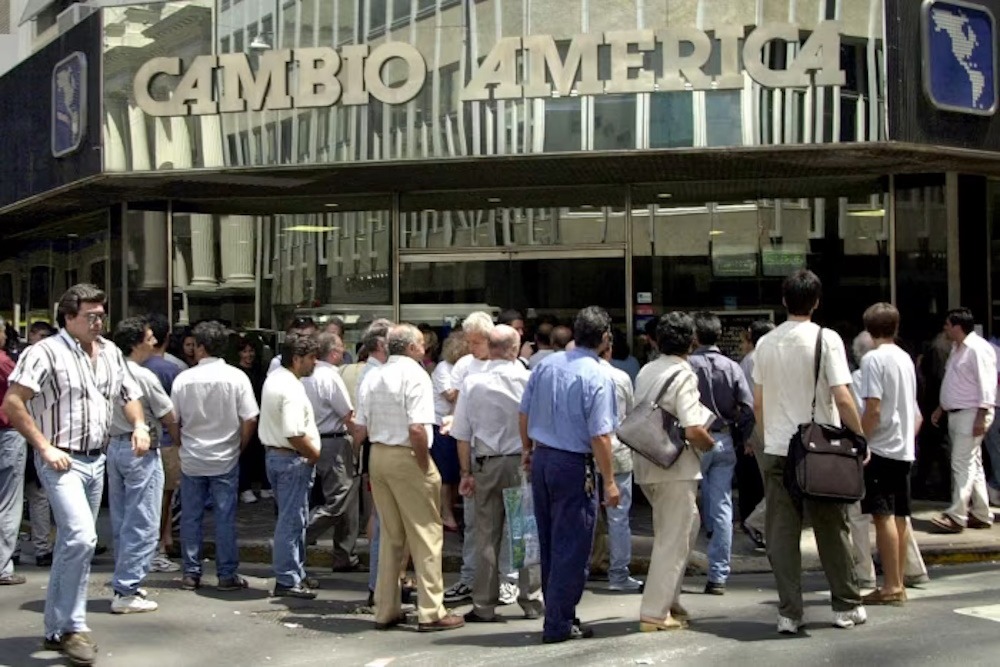Corporate defaults are beginning to accumulate in Argentina as the policies of Milei take effect. As Javier Milei undertakes the removal of the distortions that have long plagued Argentina’s economy, signs of strain are emerging, particularly impacting companies that have accumulated debt by taking advantage of exchange rate discrepancies. The President has, over the past 16-plus months, enacted significant reforms, instituting reductions in public works and substantial subsidies for utilities. He has most recently eliminated the currency controls that have regulated the peso for years.
Firms exploited the currency controls that established a disparity in exchange rates by bringing in goods at the more favorable official rate and subsequently selling them in pesos tied to a less robust parallel rate. Firms found opportunities to tap into local capital markets, capitalizing on investors eager to mitigate currency risks and swiftly acquiring securities tied to the official exchange rate, including bonds and commercial paper.
In light of the recent overhauls, companies are now facing challenges, as evidenced by two subsidiaries of utility Albanesi SA that, on Monday, were unable to meet their obligation of US$19.5 million in interest on a bond issued merely six months prior. On Wednesday, pulp and maker Celulosa Argentina SA announced that it will be unable to fulfill a payment on its dollar bonds. The defaults contribute to a roster that is anticipated to expand as Milei embarks on his bold transformation of the Argentine economy. “Albanesi had been struggling with debt for three years and, when Milei came to power, companies had to start paying higher interest rates, more in line with international rates,” said Martín Arancet, an analyst at Balanz Capital in Buenos Aires.
In recent months, agro-industrial firms Grupo Los Grobo LLC, Agrofina, and agricultural supplier Red Surcos SA have also struggled to fulfill their debt obligations. In December, Red Surcos, for instance, defaulted on the payment of two promissory notes. Los Grobo and Agrofina have amassed claims for non-payment of debts totaling approximately US$300 million, as reported by local news sources. The defaults are neither systemic nor concentrated within a singular sector. Nonetheless, they are emphasizing the increasing challenges faced by businesses in Milei’s Argentina. Albanesi identified the primary concern as Milei’s cuts to public expenditure, which resulted in disruptions in the payment streams from the state-owned electricity market operator Cammesa to energy producers. The company addressed its overdue debts via a principal write-off, neglecting to acknowledge interest, which compelled it to pursue new financing given its already high leverage and multiple ongoing projects. The company fundamentally amassed debt to service existing debt.
Los Grobo, Agrofina, and Red Surcos experienced significant challenges following Milei’s decision to normalize the exchange rate through the implementation of a de-facto fixed exchange rate. The exchange rate gap has contracted significantly, leading to a decline in expectations regarding a potential devaluation. Currently, Milei’s Central Bank permits the currency to fluctuate freely within a range of approximately 1,000 to 1,400 pesos per dollar prior to any intervention. Albanesi, Agrofina, Los Grobo, and Red Surcos refrained from providing any comments.
On Wednesday, Celulosa announced that it has engaged VALO Columbus to undertake a restructuring of its debt, as stated in a recent announcement. The company attributed its challenges to the recent fluctuations in the peso, a decline in domestic sales, and the government’s postponement of negotiations with the International Monetary Fund. While inflation was very high, the exchange rate gap was wide and the market was very closed, there was a lot of demand for hedging, and many companies had high operating results,” said Gabriela Catri, a ratings manager at Moody’s.

